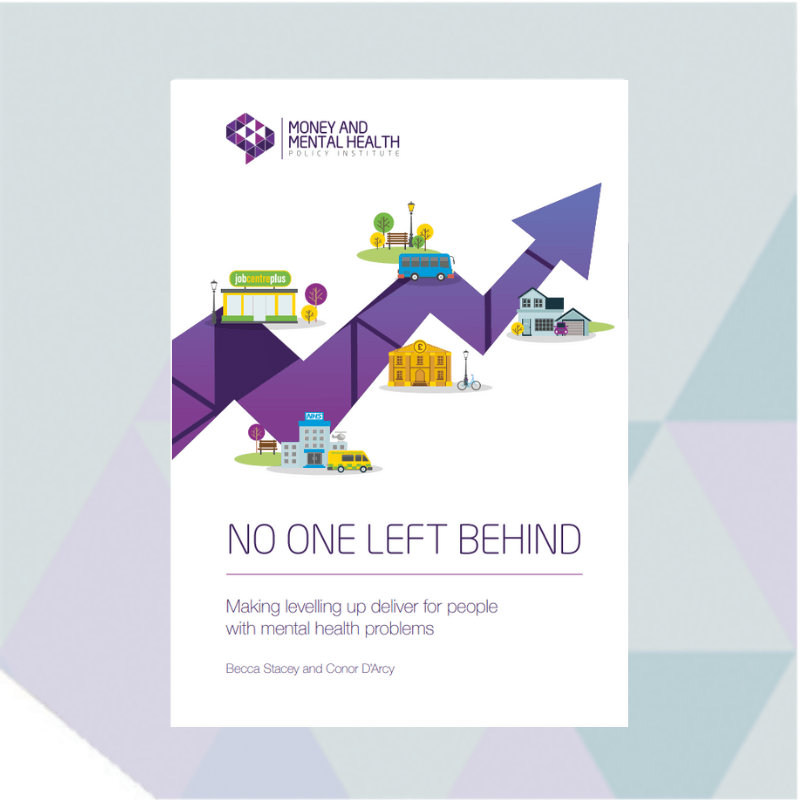Becca Stacey, Senior Research Officer and Conor D’Arcy, Head of Research & Policy
No One Left Behind
Making levelling up deliver for people with mental health problems
This report reveals the considerable economic gap between people with and without a mental health problem, and the extent to which this varies across the UK.
It shows that the inequalities people with mental health problems face are largely driven by difficulties accessing jobs and services, and the cost of living in many parts of the UK.
Boris Johnson’s government pledged that its levelling up agenda would tackle regional inequalities and boost opportunities and prosperity for people in “left behind” places. But our research warns that existing levelling up plans fail to recognise or address the fact that people with mental health problems are being left behind in many parts of the UK.
Key recommendations:
The report makes a number of recommendations on how national and local government actors can reduce the stark inequalities that people with and without mental health problems face in many parts of the UK:
- The next government should track and publish how people with mental health problems are faring on crucial levelling up metrics like income, employment, housing affordability, waiting times and access to services. It should also provide incentives to local leaders in the worst-performing places to act on these issues.
- The government should also introduce more specialist employment support for people with mental health problems, and make more of this group eligible for all concessionary travel schemes. Both these steps would better support people with mental health problems to access job opportunities.
- Local leaders should take targeted action to address the specific issues in their areas which are putting people with mental health problems at greater risk of financial difficulty. This could include steps to make jobs and housing more accessible, or measures to make local mental health and money advice services more joined-up.
